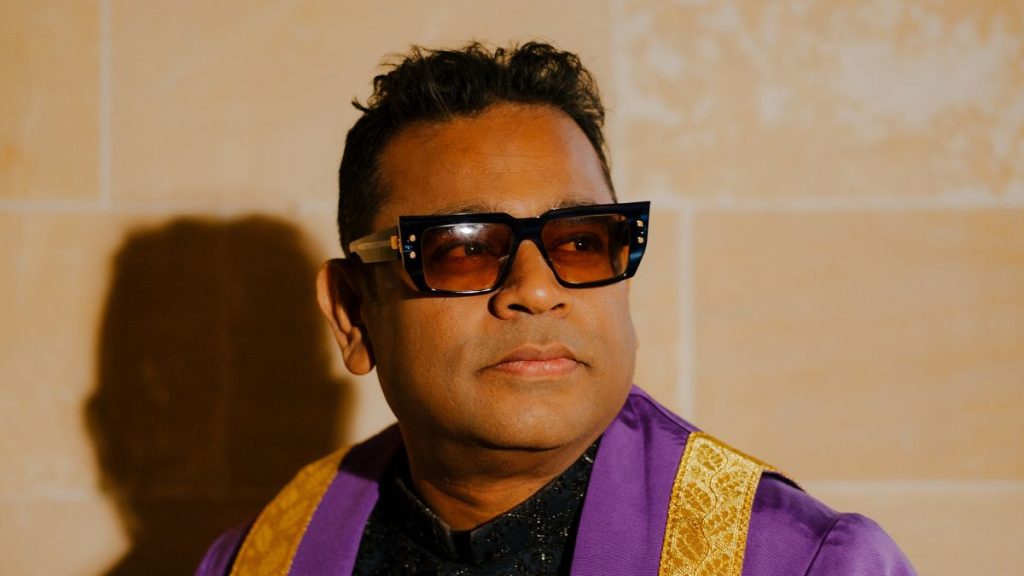A. R. Rahman, the iconic Indian composer, has seamlessly blended Eastern and Western musical traditions throughout his illustrious career. His journey, from scoring for Kollywood films to winning Oscars for Hollywood productions like “Slumdog Millionaire,” highlights his mastery of melody as a universal language. While acknowledging the distinct characteristics of Western and Eastern musical sensibilities, with the former often adhering to linear scales and the latter embracing the intricate nuances of Indian ragas, Rahman emphasizes the paramount importance of a memorable melody. He recognizes that Indian audiences are more receptive to complex musical structures, incorporating microtones and intricate ragas, while Western audiences may find these less familiar. His approach to composition revolves around crafting melodies that resonate emotionally, irrespective of cultural background.
Rahman’s career has been marked by a consistent effort to bridge cultural divides through music. His appointment as Honorary President of Trinity Laban, a prestigious London-based conservatoire, exemplifies this commitment. Having trained in both Indian and Western classical music traditions, Rahman brings a unique perspective to the institution. Trinity Laban, known for its diverse alumni ranging from Fela Kuti to contemporary jazz artists, shares Rahman’s vision of pushing artistic boundaries and challenging conventions. This appointment marks a full-circle moment for Rahman, who received a classical music scholarship at Trinity College of Music in London at the age of 13. His own musical journey reflects the institution’s emphasis on innovation and cross-cultural exchange.
From the outset of his career, Rahman has displayed a penchant for challenging established norms. His debut soundtrack for the Tamil film “Roja” broke with traditional conventions, setting the tone for his future work. He believes in the importance of reinvention, both in music and in life, constantly seeking new avenues for creative expression. This philosophy extends to his approach to education, where he advocates for broad-based learning and access to opportunities for all. The KM Music Conservatory, founded by Rahman in his hometown, provides musical training and career development for aspiring musicians, regardless of their socioeconomic background. The Sunshine Orchestra, a part of KM, offers free musical education to underprivileged children, demonstrating Rahman’s commitment to social equality through music.
Rahman’s educational philosophy stems from his belief that music transcends social barriers. He observes that affluent individuals often have the luxury of pursuing specialized musical training without worrying about future employment, while those from less privileged backgrounds face significant obstacles. The orchestra provides a level playing field where musical talent is the sole criterion for participation. Rahman believes that the act of listening to music transcends social identities, creating a shared experience that unites individuals. This principle drives his educational endeavors, fueling his desire to provide opportunities for all to experience the transformative power of music.
Rahman’s enduring passion for music is rooted in his deep spiritual beliefs. He sees music as a pathway to self-discovery and a means of connecting with a higher truth. He questions the notion of music being forbidden in certain religions, emphasizing its potential to unveil deeper meaning in life. For Rahman, music is a tool for removing the veils of ignorance and uncovering the truth within oneself. He draws inspiration from diverse sources, including street musicians, symphonic works, and religious chants, finding common threads of beauty and spiritual resonance. He often turns to the poetry of Sufi philosopher Baba Bulleh Shah, extracting melodies from the verses and imbuing them with the profound meaning embedded within the lyrics.
At 57, Rahman shows no signs of slowing down. His multifaceted endeavors include his new role at Trinity Laban, plans for a new theatre in Chennai, the development of a virtual metal band, a stage adaptation of “Slumdog Millionaire,” and aspirations to direct films. His unwavering enthusiasm and commitment to artistic exploration demonstrate a belief that the most fulfilling achievements are yet to come. Rahman’s journey is a testament to the power of music to transcend cultural boundaries, inspire social change, and connect individuals with their inner selves. His continued pursuit of creative expression and his dedication to education ensure that his legacy will continue to resonate for generations to come.














